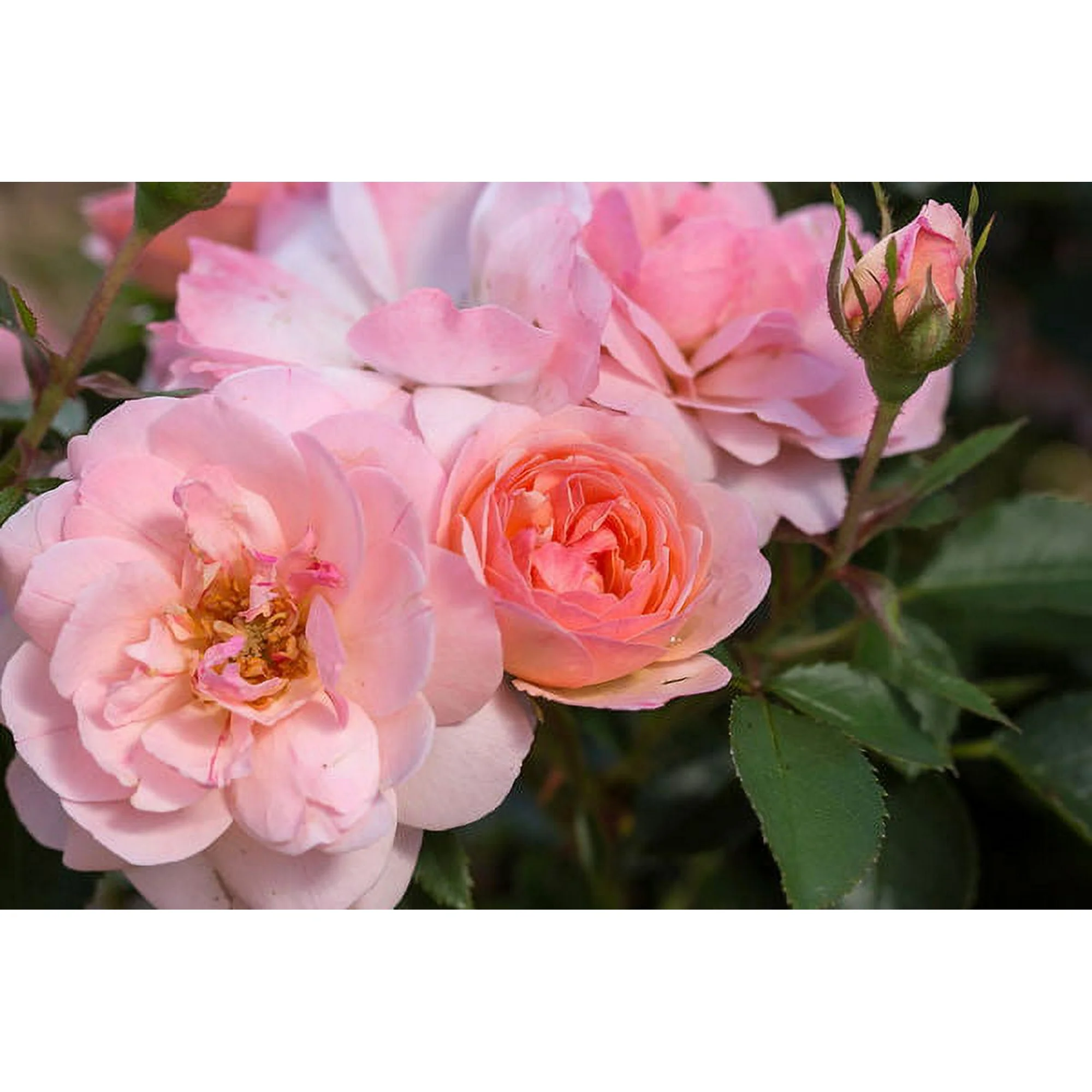
Expert Gardener 1.5g Rose Np Assorted Live Plant
- Expert Gardener 1.5g Rose Np Asst
$16.88
A Beginner’s Journey to Rose Gardening Success
As an aspiring gardener with a newfound passion for roses, I set out on a quest to learn everything I could about successfully growing beautiful, vibrant roses in my own backyard. My research led me to the renowned Expert Gardener brand of roses, widely considered among the best roses for beginners. In this comprehensive guide, I’ll share everything I’ve learned on my journey about choosing, planting, caring for, and troubleshooting issues with Expert Gardener roses.
An Overview of Expert Gardener Roses
Expert Gardener offers a diverse selection of hardy, low-maintenance rose varieties suitable for beginners and experts alike. What makes their roses so ideal for starting rose gardeners like myself?
- Disease-resistance: Expert Gardener roses are bred to resist common rose diseases like powdery mildew and black spot. This takes a lot of the guesswork and frustration out of disease prevention and treatment.
- Extended bloom time: With up to 6 weeks of flowers per bloom, you’ll enjoy these roses blossoming in your garden for longer.
- Fragrance: Many varieties have delicious, sweet floral scents – a hallmark of the best rose gardens.
- Color range: Choose from classic red, pink, white, yellow, orange, purple and more across various rose types. Find a color to match your style!
- Hardiness: With high cold-hardiness ratings, these roses can withstand frigid winters in many growing zones.
- Compact size: Perfect for small spaces, many Expert Gardener roses have a bushy, compact habit under 4 feet tall.
Choosing the Best Expert Gardener Roses for You
With so many gorgeous options to pick from, how do you select the ideal Expert Gardener roses for your first rose garden? Here are the main factors I considered:
- Growth habit: Choose between bushy shrub roses, climbing roses, or free-flowering landscape roses depending on your needs.
- Fragrance: Opt for highly fragrant varieties if perfume is a priority.
- Color: Pick roses in your favorite hues or neutrals like white or yellow for versatility.
- Planting location: Consider compact varieties for containers or smaller spaces. Choose tougher, more disease-resistant types for especially hot and humid climates.
- Rose care requirements: Some Expert Gardener varieties are lower maintenance than others. Make sure to choose types suited for your gardening experience level.
Beyond considering these factors, it helps to see the roses in person to pick out favorites. Visit your local rose nursery and take notes on which Expert Gardener roses capture your eye.
Preparing the Planting Site for Your Roses
One of the keys to unlocking success with Expert Gardener roses is giving them the very best start in life with ideal growing conditions. Here’s how to prepare your planting site:
- Sunlight: Pick a spot with at least 6 hours of direct sunlight per day. Morning sun is ideal.
- Soil quality: Roses thrive in nutrient-rich, well-draining soil. Amend clay or sand soils with compost.
- Drainage: Ensure the site drains well to prevent root rot. If needed, plant on a slope or mound.
- Air circulation: Allow ample space between plants for air to circulate and prevent mildew.
- Water access: Have a hose or irrigation system nearby to simplify watering.
- Fertilizer: Mix compost and slow-release granular fertilizer into the soil before planting.
Taking time to create the perfect growing conditions gives your Expert Gardener roses their best shot at a lifetime of beauty and abundant blooms in your garden.
Planting and Caring for Your Expert Gardener Roses
Once I prepped the ideal planting sites for my new roses, it was time for the fun part – planting! Here are the simple planting and care steps I followed:
- When to plant: I planted my bareroot roses in early spring once the ground had thawed. Potted roses can be planted in spring, summer, or fall.
- Dig wide holes: Each hole was about 2 ft wide x 1.5 feet deep to accommodate the root system.
- Watering: I gave each new plant a thorough watering immediately after planting.
- Fertilizing: I used an organic rose fertilizer once per month after blooming starts.
- Mulching: A 2-inch layer of shredded bark around the base of each plant retains moisture and deters weeds.
- Pruning: I prune lightly at planting time, then more extensively in early spring each year to improve shape and blooming.
- Watering needs: My roses thrive with about an inch of water per week from either irrigation or rainfall.
- Soil pH: I test and amend the soil pH yearly to keep it between 6.0-6.5 as roses prefer.
Following this regimen, my Easy Elegance and Knock Out roses burst into glorious bloom just a couple months after planting – the payoff for proper care!
Troubleshooting Common Rose Problems
Even the most carefree Expert Gardener rose may occasionally suffer from common rose woes like:
- Powdery mildew: This fungal disease appears as a white powdery coating on leaves. I use neem oil or potassium bicarbonate sprays as an organic treatment. Improving air circulation also helps prevent mildew.
- Black spot: Dark spots that appear on leaves indicate this fungal disease. It thrives in wet conditions, so careful watering and keeping leaves dry is key. Organic fungicides containing neem oil or sulfur provide control.
- Aphids: These tiny sucking insects cluster on stems and leaves, distorting growth. Washing them off with a strong spray of water is my first line of defense. Insecticidal soap or neem oil also combat stubborn infestations.
- Japanese beetles: I hand pick these metallic beetles from blossoms to prevent damage. Natural predators like birds and beneficial nematodes also help reduce their numbers.
By learning to properly care for my roses and deal with potential issues right away, I can enjoy healthy, prolific blooms despite the occasional hiccup. The peace of mind provided by growing resistant Expert Gardener varieties makes rose gardening so much more enjoyable.
Overwintering Tender Roses
While many modern roses are quite winter hardy, some may still need extra protection in cold climates. Here are my tips for successfully overwintering tender Expert Gardener roses:
- **Wait until the plant is dormant after several hard frosts to prune and prepare for winter.
- **Move potted roses to an unheated garage or cellar before temperatures drop below freezing.
- **Heap 8-12″ of shredded bark, compost, or leaves over the base of in-ground roses as insulation.
- **Wrap climbing roses and create protective frames around shrub roses using burlap and stakes.
- **Water thoroughly if the ground isn’t frozen prior to an extended deep freeze.
- **Prune back heavily and clean up all fallen leaves and debris once winter arrives.
- **Uncover, lightly prune, and water your roses once spring arrives.
Following these tips, I was able to successfully overwinter even my more tender rose varieties. A bit of simple winter protection allows you to grow almost any type of rose, even in challenging climates.
Discovering the Joy of Growing Roses
Since planting my first Expert Gardener roses last year, I’ve been utterly captivated by the beauty, fragrance, and charm they’ve added to my garden. While roses require a bit more care compared to other plants, they generously reward you with their lush blooms and heavenly scent. By using disease-resistant varieties bred for beginners and following proper rose care basics, rose gardening quickly went from intimidating to a true joy. If you’ve ever considered adding roses to your landscape, I highly recommend starting your rose journey with the hardy, carefree roses from Expert Gardener. You’ll soon discover why gardeners have adored growing roses for centuries!


